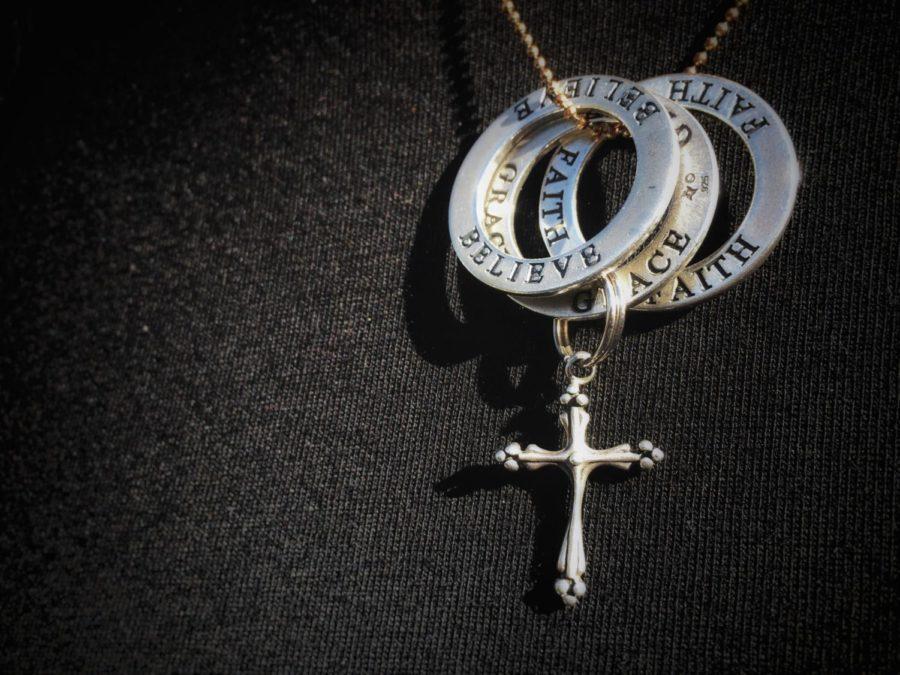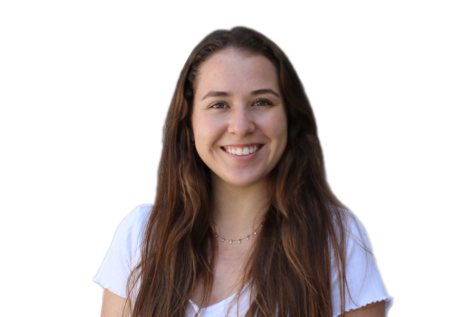Sophomore Diane Ji walks through the halls of Carlmont with her faith close to her heart.
Dangling from her neck lies a cross with three rings engraved with the words “believe,” “grace,” and “faith.”
While she is now a devoted Christian, Ji said that as a child she was not “truly religious.” For Ji, going to church was once a way to have fun, but now it means something more.
“When I moved to California in sixth grade, my faith grew stronger,” Ji said. “I learned to trust more in God because for a while, He was my only friend.”
While Ji’s belief in God grows stronger over time, the number of Americans identifying as religious is declining.
In 2007, the Pew Research Center reported that more than 83 percent of Americans were religious. By 2014, the religious share of the U.S. population had decreased by 7 percent.
Over the same period, the percentage of Americans who were atheist, agnostic, or “nothing in particular” increased from 16.1 percent to 22.8 percent.
While this data may suggest that America is becoming less religious, a closer look reveals that religion continues to play an important role in many lives.
For the president of the Muslim Fellowship Club, Zaina Abdelrahman, a junior, being Muslim is not just a matter of religion; it is a way of life.
“To me, being Muslim is about bettering oneself through the process of spreading peace and love to all living beings,” said Abdelrahman.
According to Abdelrahman, the beauty of Islam is that one doesn’t have to tell others their Muslim identity.
“Instead, I just have to show them through my actions about what Islam truly stands for,” said Abdelrahman.
Abdelrahman is among the many students at Carlmont who feel that religion has helped guide them through life and see the world in new perspectives.
For one anonymous sophomore, Judaism serves as a guideline to everyday life and a reminder to appreciate the important parts of life.
“In Judaism, there’s a set of rules called The Ten Commandments, and although I don’t live by these rules word for word, I try to remember them as I find many to be pretty applicable to daily life,” he said.
He, along with a quarter of Americans ages 18 to 29, turns to religion for guidance on right and wrong.
Gabe Mitnick, a sophomore, was raised in what he described as a “somewhat religious household.” Like many other Jewish students, he grew up attending religious after-school programs and had a bar mitzvah.
However, Mitnick never believed in God. While he knows about Judaism, Mitnick feels more impacted by its culture.
“Being Jewish is a combination of several things,” Mitnick said. “Jewish people have existed for thousands of years and though religion is a part of it, and some people try really hard to maintain it, there are other aspects like the identity, culture, and history.”
Carlmont is a diverse school with students from many different backgrounds and faiths. Among the multiple cultural clubs, there are a total of three religious clubs: the Jewish Club, the Christian Club, and the Muslim Fellowship Club.
For many students, these clubs provide a means to express their faith and come together as a community.
Sarah Selman, a senior, has been greatly impacted by her Jewish identity. While she does not consider herself “religiously Jewish,” Selman has been an active member of religious groups such as B’nai B’rith Youth Organization and is the current president of the Jewish Club.
“I think religious clubs provide a community for students at Carlmont,” Selman said. “It gives students a place where they can feel welcomed and supported by others who have similar values and upbringings.”
When Kalea Pasion first arrived at Carlmont, she was thrilled to discover that there were others who shared the same values and were passionate about their faith. Now, as a senior and the president of the Christian Club, Pasion reflects back on her experience with the club.
“Having a support group of friends to share life experiences with and to grow together in our faith is the most impactful pursuit I’ve had on campus,” Pasion said.
Pasion also believes that there are not enough religious clubs at Carlmont and said that the school should reflect the diversity that makes up the student body.
“It’s important that no one on campus feels like they are alone,” Pasion said. “Every student should have people around them that they can connect with.”
Although of a different faith, sophomore Tasneem Khalak also believes that religion has influenced her life and how she views the world.
Khalak is one of the estimated of 3.45 million Americans who are Muslim, one of the most ethnically diverse religious populations in America today.
“Religion connects you with people that you may never meet, and in my experience, it’s pretty cross-cultural, so I get exposed to more cultures through Islam,” Khalak said.
While being religious may make up a huge part of one’s identity, it is something that is often unknown to others. Some students express their religion in an open way–through wearing religious items or participating in clubs–but others do not. No matter how they choose to express their religious beliefs, many students at Carlmont benefit from religion.












